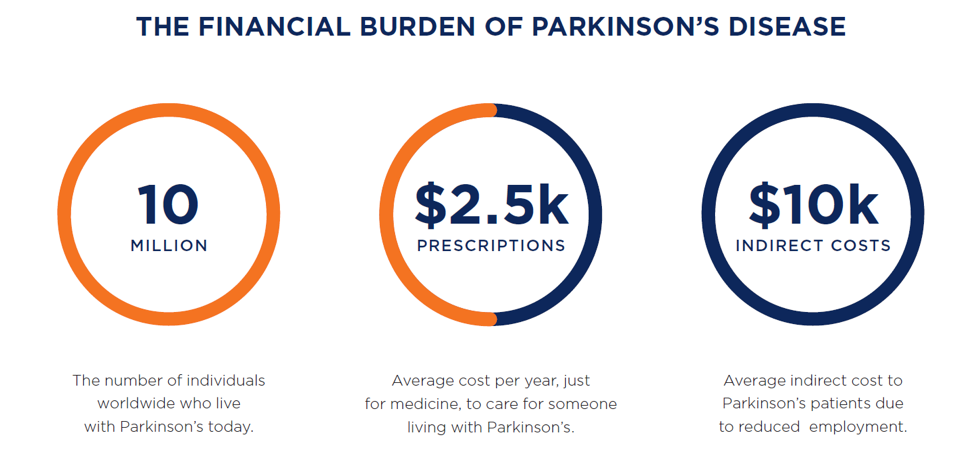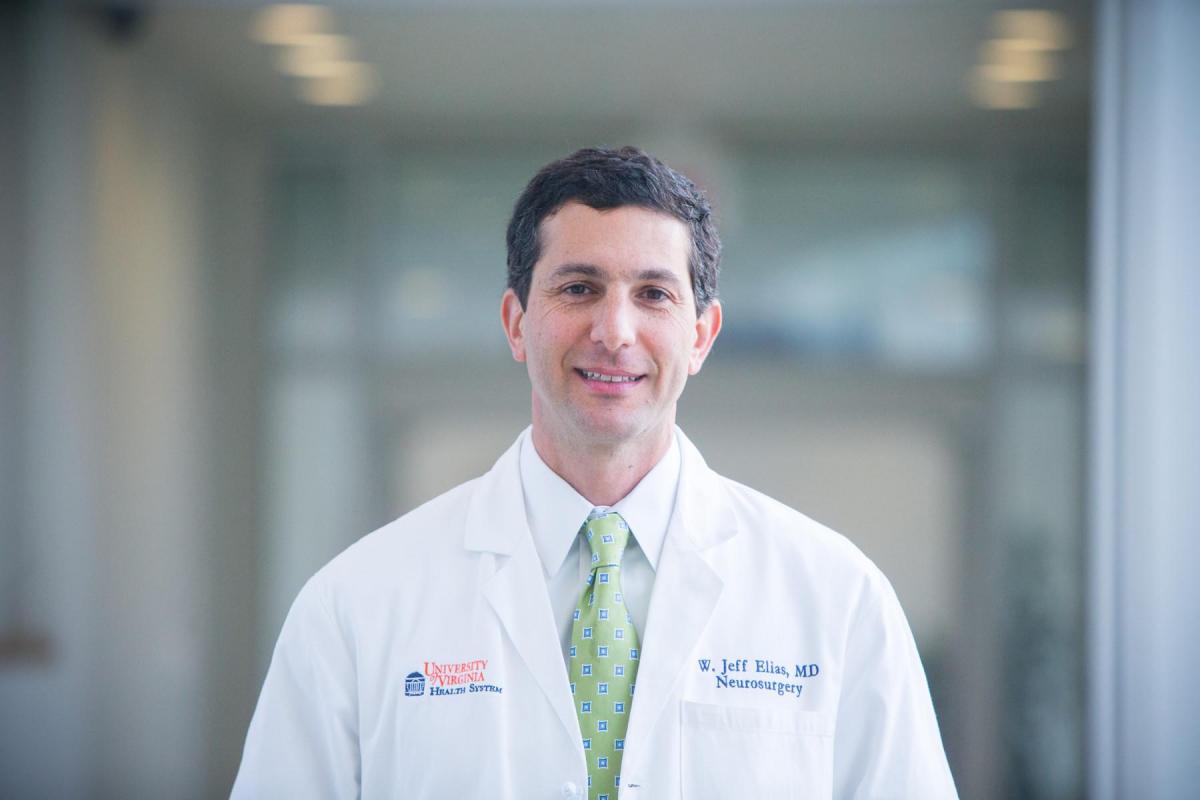Stilling Parkinson's Tremors
People with Parkinson’s often deal with debilitating tremors and limited dexterity, symptoms that can make every day actions like pulling money from a wallet or attending social gatherings challenging and sometimes embarrassing.
Now patients may have new hope. The Food and Drug Administration has approved a scalpel-free treatment for tremor in patients with medication-resistant Parkinson’s disease.
The procedure, called focused ultrasound, allows doctors to perform brain surgery without cutting into the skull. It was shown safe and effective for reducing medication-resistant Parkinson’s tremor in international clinical trials led by neurosurgeon Jeff Elias of UVA School of Medicine.
“We are very excited about this approval,” Elias said. “Now, patients with Parkinson’s disease have more treatment options.” It’s been estimated that 10 – 20 percent of Parkinson’s patients have tremor-dominant Parkinson’s.
UVA previously led the clinical research that paved the way for FDA approval of the technology for treating essential tremor, the most common movement disorder affecting millions of Americans. In 2018, the UVA Licensing & Ventures Group named Elias the Edlich-Henderson Innovator of the Year for his pioneering work with focused ultrasound. The award recognizes a UVA faculty member whose work is making a major impact on society.
Using Sound Waves to Heal
The focused ultrasound technology directs sound waves though the skull and into the brain to generate a tiny hot spot, much like a magnifying glass focuses light. By heating tissue in this fashion, doctors can interrupt the faulty brain circuits that cause the uncontrollable shaking associated with Parkinson’s. Magnetic-resonance imaging (MRI) lets the doctors monitor the location and intensity of the procedure in real time—an important safety feature before they make permanent changes to the brain.
While focused ultrasound has been approved for the treatment of medication-resistant Parkinson’s tremor, Elias continues to test the technology’s potential for treating other symptoms of Parkinson’s disease. In addition, researchers at UVA are evaluating the scalpel-free surgery’s potential to treat many other conditions, including breast cancer, brain tumors, epilepsy, and pain.
While a Parkinson’s disease diagnosis can be a life-altering event, patients and families are joining the fight, teaming with investigators at UVA to foster the best ideas from concept to clinic. None of this groundbreaking research would have been possible without a robust partnership between UVA Health System, the Commonwealth of Virginia, and the Focused Ultrasound Foundation, which brought the research to Charlottesville. Private support from benefactors and friends helped speed clinical trials. This early investment in a breakthrough technology continues to improve the quality of life for people around the globe—and the full potential of focused ultrasound has yet to be discovered.


